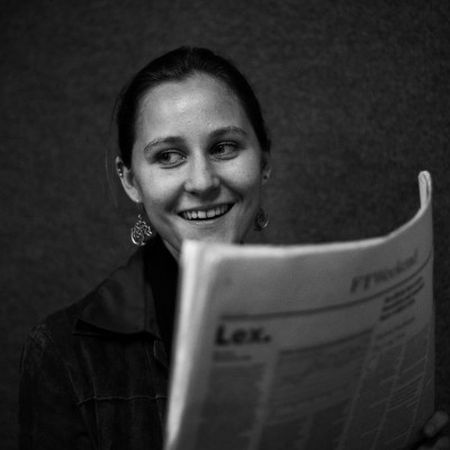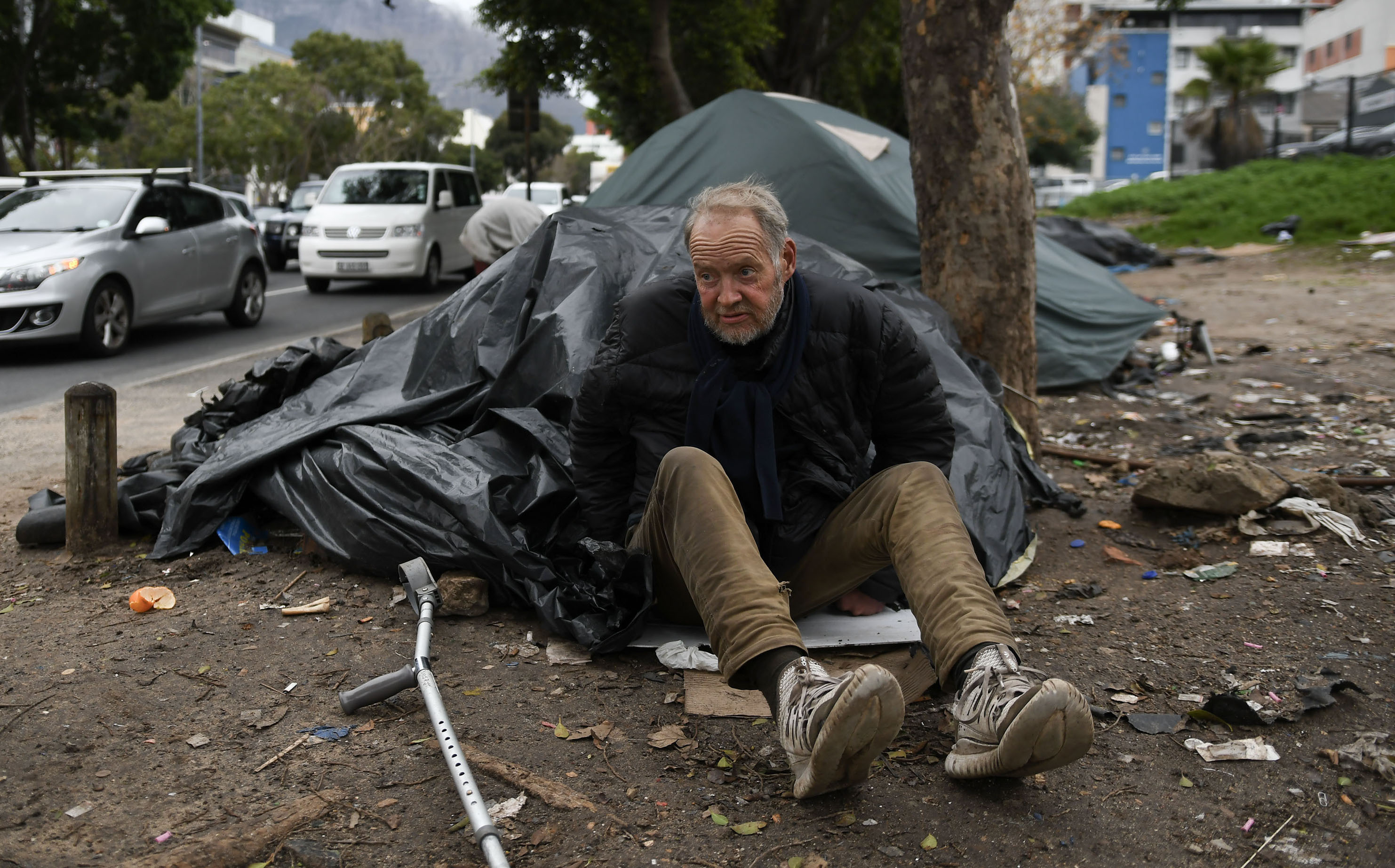Last week, I bought a new bed. It is, hands down, one of the best purchases I’ve made as an adult. Even more so when you consider that up until then, I was still sleeping on the second-hand single bed I bought off one of my honours-year classmates. My first night in this new bed was one of the most comfortable I can remember.
/file/dailymaverick/wp-content/uploads/2024/07/Helen-Suzman-Blvd-Encampment-DH-2013-copy.jpg)
/file/dailymaverick/wp-content/uploads/2024/07/Foregate-Square-Encampment-DH-1474-copy.jpg)
/file/dailymaverick/wp-content/uploads/2024/07/Foregate-Square-Encampment-DH-1424-copy.jpg)
Around the same time as I got the bed, I started working on an article about a recent Western Cape High Court ruling that approved the eviction of unhoused persons from seven sites around Cape Town’s inner city by the end of July. Through interviews with people living in these spots – and the city-funded Safe Space One shelter under the Culemborg Bridge – I began to build a more complete picture of their lives. Our conversations have taken shape against a backdrop of escalating storms and frigid temperatures.
I’ve slept terribly ever since, and the new bed hasn’t helped.
There are certain mantras of the middle class when it comes to living alongside those who’ve been left without a home. “Don’t give them money, they’ll just use it for drugs and/or alcohol”. “If they really wanted to, they could get out of that situation”. “I went through a difficult time, and look where I am”.
Cold reality
The cold reality is that many of us are closer to living on the street than we think.
One of my conversations during the past week was with Inus Gouws. He’s a 52-year-old man who worked as an IT specialist and data modeller up until the onset of Covid-19. He was laid off – along with seven others – when the pandemic hit.
For some of us, there is a safety net when faced with the crisis of lost employment. We can fall back on parents, spouses or friends. For Gouws, he was that safety net. He’d been supporting his parents and his wife’s parents up until that point. There was no one left to catch him when he fell.
/file/dailymaverick/wp-content/uploads/2024/07/Inus-Gouws-Strand-Street-DH-1710-copy.jpg)
/file/dailymaverick/wp-content/uploads/2024/07/Inus-Gouws-Strand-Street-DH-1580-copy.jpg)
Both Gouws and his wife ended up on the street. In 2023, while walking back to their shelter from a public toilet in the dark, Gouws’ wife was mugged and stabbed to death. Her final moments were spent just off Buitengracht Street, which many of us take to work.
Sometime after, Gouws witnessed a robbery on that same street. He went to court to testify. The gang-mates of the man he helped to send to jail hunted him down and tried to break his back. As a result, he spent some 20 weeks in Karl Bremer Hospital, wondering if he’d ever walk again. He has been left disabled, vulnerable… and still on the street.
/file/dailymaverick/wp-content/uploads/2024/07/Cape-Town-Castle-Encampment-DH-1754-copy.jpg)
“There’s a lot of things that I’ve learnt on the street. I never knew of this life. I never thought or dreamt about this life,” he reflected.
“If I was a normal member of the public, which I was only a couple years ago – looking at people, driving my car to work – and a homeless guy would come up to me, I myself would put up the window, switch on the radio, not look at them… I always said they had a choice; they made that choice. And now I’m in the same position.”
Gouws lives at one of the seven sites that will enforce eviction by the end of this month. His home for the past three years has been the corner of Buitengracht and Strand Street. For him, anything would be better than spending another night at the mercy of criminal and winter elements. The city says it will relocate him and other evictees who are willing to accept alternative accommodation to a yet-to-be-opened shelter called Ebenezer Safe Space Three in Green Point. He believes he’ll get a better life after his eviction, and I hope that’s true.
More than 100 unhoused persons will be evicted from the seven sites around Cape Town this month. When the court ruling approving the evictions was handed down, the Socio-Economic Rights Institute of South Africa (Seri) – which represented the evictees in court – initially believed they would be accommodated at the Safe Space One shelter. The city has since said it will offer the evictees places at Ebenezer Safe Space Three.
Occupants of Safe Space One have made allegations of poor and undignified conditions at the shelter. Among their claims is that the rudimentary structures – corrugated iron roofs with no walls – don’t provide adequate protection from the elements. Rats are allegedly commonplace there, getting into beds and belongings and biting some residents.
The city has stated that sleeping quarters are protected and monthly pest control services are provided at the site, adding that on a scale of dignity and health, there was “no comparison” between what the city was offering at the Safe Spaces and what the occupants endured on the street.
Read more: ‘A travesty of human rights’ — Cape Town shelter occupants tell of degrading conditions
Harmful misconceptions
Safe Space One is a free shelter for people who’ve been left without a home. Occupants of the site repeatedly brought up the harmful misconception that homelessness is mainly caused by drug and alcohol use and stressed that the situation was often far more complex.
While some unhoused people do struggle with these issues, there are many other factors at play. One Safe Space One resident was an operations director overseas before returning to support his sick mother. Around the same time that she died, the Covid-19 pandemic hit and he’s been struggling to find a job ever since. Another told me that a messy divorce was the catalyst for him living on the street. What he thought would be a short-term situation has now lasted many months.
There are residents of Safe Space One who are living with mental health conditions, some of which have been exacerbated by the trauma of spending time on the streets. I was told there are a significant number of elderly people who end up in the shelter, some of whom are suffering from conditions like Alzheimer’s or dementia. They belong in a care facility but – for whatever reason – have been left without the support they need.
A big part of the problem is that once people reach the point of living on the street, it becomes very difficult to escape the situation, whether they want to or not. This is in part because of the harmful assumptions that are made about them, but also because of other barriers. Things of value are often stolen; it’s a challenge to meet acceptable standards of appearance for job interviews; and it gets progressively harder to rise above feelings of exhaustion and hopelessness. The longer a person’s on the street, the harder it gets.
As one Safe Space One resident put it, “I didn’t plan on getting into this situation but the plan is to not stay in it. However, a lot of people have said to me in the last few months that there comes a point where people cross that line — the point of no return — and they throw in the towel… This becomes the new reality.”
The truth is that if I were to lose my job – due to the shrinking media industry, poor decision-making or chance – I’d probably have about three or four months before my savings dried up. My good fortune is that I have a parent who would, begrudgingly but lovingly, allow me to move back in for a while; some good friends who’d let me couch-surf for a few months; contacts in my industry who might give me another opportunity. But not everyone is so lucky.
The space separating those with homes from those without is narrow. Narrower than we think.
I think it makes us better people to remember that. DM





 Inus Gouws at his shelter on the corner of Strand & Buitengracht Street in the Cape Town, 17 July 2024. Inus & others in encampments around the CBD will be forced to move at the end of the month when a City of Cape Town eviction court order takes effect. (Photo: David Harrison)
Inus Gouws at his shelter on the corner of Strand & Buitengracht Street in the Cape Town, 17 July 2024. Inus & others in encampments around the CBD will be forced to move at the end of the month when a City of Cape Town eviction court order takes effect. (Photo: David Harrison)